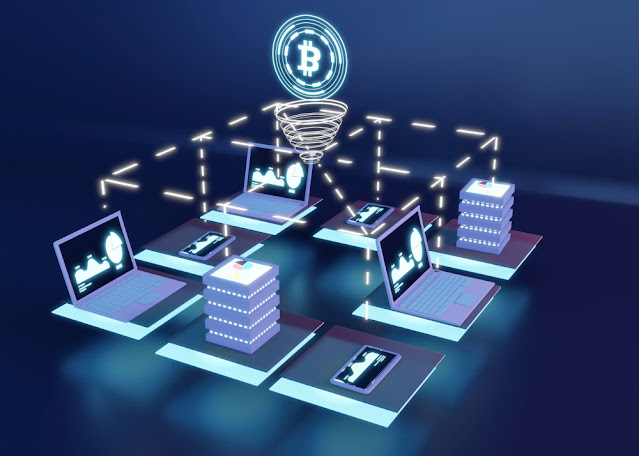"Sustainable Blockchain: Environmental Impact and Green Solutions"
"Sustainable Blockchain: Environmental Impact and Green Solutions"
Introduction:
Blockchain technology has revolutionized industries, offering transparency, security, and decentralization. However, its rapid growth has raised concerns about its environmental impact, particularly due to energy-intensive mining processes. As society becomes increasingly focused on sustainable practices, it is crucial to explore the environmental challenges posed by blockchain and identify green solutions to mitigate its ecological footprint. This article delves into the environmental impact of blockchain and examines various sustainable strategies that promote eco-friendly blockchain adoption.
Environmental Impact of Blockchain:
a. Energy Consumption: The most significant environmental concern surrounding blockchain is its energy consumption. Proof-of-Work (PoW) consensus mechanisms, employed by major cryptocurrencies like Bitcoin and Ethereum, require massive computational power, leading to high electricity usage and carbon emissions.
b. E-Waste Generation: The frequent upgrade cycles of mining hardware result in significant electronic waste generation, as outdated equipment becomes obsolete.
c. Carbon Footprint: The carbon footprint of blockchain activities has become a pressing issue, as the energy sources powering these operations are often non-renewable.
Green Solutions for Sustainable Blockchain:
a. Transition to Proof-of-Stake (PoS): PoS consensus mechanisms offer a more eco-friendly alternative to PoW. By replacing energy-intensive mining with staking, where validators are chosen based on the number of coins they "lock up," PoS dramatically reduces energy consumption and carbon emissions.
b. Renewable Energy Integration: Encouraging the use of renewable energy sources for blockchain mining can significantly reduce its overall carbon footprint. By locating mining operations near renewable energy facilities, blockchain networks can become more sustainable.
c. Blockchain Interoperability: Promoting interoperability among blockchains can reduce redundant energy expenditure. By enabling cross-chain transactions, users can avoid relying on energy-intensive mainnet processes.
d. Decentralized Applications (dApps) Optimization: Developers can create energy-efficient dApps that consume fewer resources without compromising performance. By optimizing smart contracts and utilizing Layer 2 scaling solutions, blockchain applications can be more sustainable.
e. Blockchain as a Catalyst for Environmental Initiatives: Blockchain technology can support environmental efforts such as carbon offsetting and supply chain transparency. Projects utilizing blockchain to track emissions or promote eco-friendly practices can leverage its potential for positive environmental impact.
Industry Initiatives and Collaborations:
a. Corporate Sustainability: Blockchain companies and cryptocurrency projects should embrace sustainable practices, including carbon-neutral operations, recycling initiatives, and supporting clean energy projects.
b. Collaboration with Renewable Energy Firms: Partnerships with renewable energy providers can ensure that blockchain operations are powered by green energy sources.
c. Research and Innovation: Continued research into energy-efficient consensus mechanisms, blockchain scalability, and eco-friendly mining hardware is essential for driving sustainable blockchain development.
Conclusion:
The potential of blockchain technology is vast, but its environmental impact must be addressed to ensure a sustainable future. By implementing green solutions, transitioning to PoS, optimizing dApps, and collaborating with renewable energy providers, the blockchain industry can minimize its ecological footprint. Embracing sustainability in blockchain development will not only benefit the environment but also strengthen the credibility and long-term viability of this transformative technology.




Comments
Post a Comment